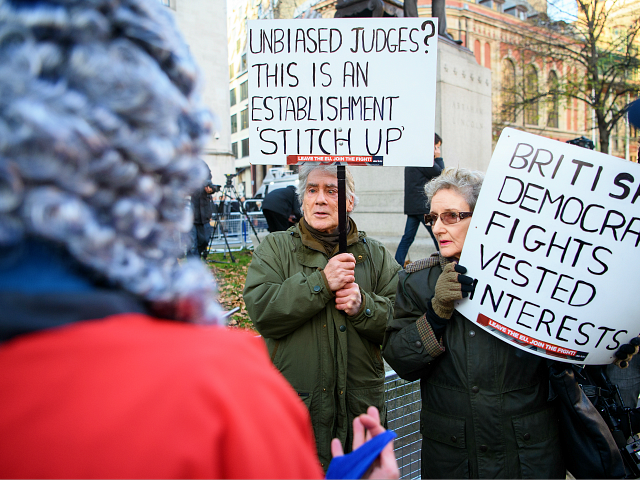Retiring president of the Supreme Court Brenda Hale has claimed that she and her colleagues — who overturned Prime Minister Boris Johnson’s decision to suspend parliament — are not “activists” and are “not politically motivated”.
The UK’s Supreme Court has come under the spotlight in recent months after in September it ruled in favour of anti-Brexit activists Gina Miller and Joanna Cherry MP by ruling Prime Minister Johnson’s prorogation (suspension) of parliament was “unlawful”.
In the aftermath of the decision — when the Remainer-dominated parliament was ordered back to work and where they continued to find means of stopping Brexit — leader of the House of Commons Jacob Rees-Mogg reportedly called the ruling a “constitutional coup” in private while a senior ally of Mr Johnson asked whether the judges now believed that they ran the country rather than democratically elected politicians.
Conservative Party veteran Lord Peter Lilly said at the time he was aware that several of the judges were Remainers who had “expressed strident disbelief that anyone could support Brexit” and warned of the politicisation of judges in both their selection and decision-making, which in turn could erode public trust in the judicial system.
Baroness Hale of Richmond spoke to BBC Radio 4’s Today programme on Friday, claiming that she and her colleagues were not “activists”, and that their political beliefs had no influence on their rulings.
“We are not politically motivated. I do not know the political opinions of my colleagues and they don’t know mine, and long may it remain so,” Lady Hale said.
Downing Street Questions Impartiality of Judge After Court Rules Against Parliament Suspension https://t.co/Q9qja0rQAj
— Breitbart London (@BreitbartLondon) September 11, 2019
Despite the Supreme Court having only been operational since 2009 (following its creation in 2003 by Tony Blair), it has become a sacred cow by the establishment in the UK, whose decisions and manner of appointment is above criticism.
In the United States, Supreme Court judges face a cross-party hearing before a vote on their appointment in the Senate. The nomination in the first instance is made by the President of the United States, who was elected by the American people. In the United Kingdom, however, the elected government is minimally involved in the selection process, with President of the Supreme Court chairing the selection committee.
Lady Hale criticised the American system, hoping that input by elected officials in the process would never come to the United Kingdom, saying: “I hope very much that we never get to a situation where the politics of the judge… come into whether or not they merit appointment as a judge of any level of the system. We do not have political appointments in this country and I think it would be a very great shame if we did.”
Speaking to the Today programme on Saturday, former leader of the Conservative Party Michael Howard said the current appointment system “could almost be characterised as a self-perpetuating judicial oligarchy”, and said that changes need to be made.
“Who should make the law by which we are ruled? Should it made by electable, accountable politicians, answerable to their constituents and vulnerable to summary dismissal at elections, or by unaccountable, unelected judges who can’t be removed?” Mr Howard asked.
REPORT: Rees-Mogg Called Supreme Court Ruling ‘Constitutional Coup’ https://t.co/LBCYAjwTnw
— Breitbart London (@BreitbartLondon) September 25, 2019

COMMENTS
Please let us know if you're having issues with commenting.